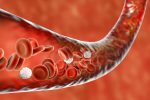Pivotal Trial of Oral HZN-825 in Treating dcSSc Enrolls 1st Patient
Written by |

A first patient has been enrolled in a pivotal Phase 2b clinical trial testing the safety and effectiveness of HZN-825, Horizon Therapeutics‘ oral investigational medicine for people with diffuse cutaneous systemic sclerosis (dcSSc), a form of systemic scleroderma.
The trial (NCT04781543) aims to enroll 300 people, between the ages of 18 and 75, with dcSSc whose disease symptoms — other than Raynaud’s phenomenon — first became evident less than three years ago, among additional criteria. The trial is actively recruiting participants at six locations in the U.S.
Patients will be randomly divided into three evenly sized groups: one will be given 300 mg of HZN-825 each morning and evening (twice daily), another will receive 300 mg of HZN-825 and a placebo tablet each morning and evening, and the final group will get a placebo tablet twice daily.
Its main goal is to assess the effects of treatment on forced vital capacity (FVC) after 52 weeks or about one year. FVC is a measure of how much air a person is able to forcibly blow out in a breath; it is commonly used as a measure of lung health.
To be eligible for the trial, patients must also have an FVC score of at least 45% of what is typical, as determined by spirometry, at screening.
People with dcSSc often experience impaired lung function due to fibrosis (scarring) in the lungs. Scar tissue can interfere with the organ’s ability to get oxygen to the rest of the body, and it can make the lungs stiffer and harder to expand.
“This trial will help determine the safety, efficacy and tolerability of [HZN-825] in decreasing the decline of lung function due to fibrosis,” Dinesh Khanna, MD, a professor of rheumatology and medicine at the University of Michigan and coordinating investigator for the trial, said in a press release.
The trial also will assess patient- and clinician-reported measures, as well as safety outcomes. If positive, results are expected to support applications for regulatory approval.
HZN-825 is designed to prevent scarring by blocking the activity of the lysophosphatidic acid 1 receptor (LPAR1), a protein receptor whose activity has been implicated in driving fibrosis.
“Research suggests that LPAR1 inhibition is a promising approach to target fibrosis in many organ systems, including skin and lung,” said Elizabeth Thompson, PhD, executive vice president of research and development at Horizon.
“The enrollment of the first patient in this pivotal study marks an important milestone in assessing HZN-825 for these patients,” she added.
HZN-825 was originally developed by Sanofi under the name SAR100842. It was then acquired by Curzion Pharmaceuticals and rebranded as CZN001. Horizon acquired Curzion last year.
Data from an earlier Phase 2a trial (NCT01651143) that Sanofi sponsored indicated that treatment with HZN-825 reduced skin thickening in people with dcSSc. The modified Rodnan skin score (mRSS), a measure of skin thickness, is a secondary measure being assessed in Horizon’s Phase 2b study.
All who complete this trial will be eligible to enter a 52-week extension study.






